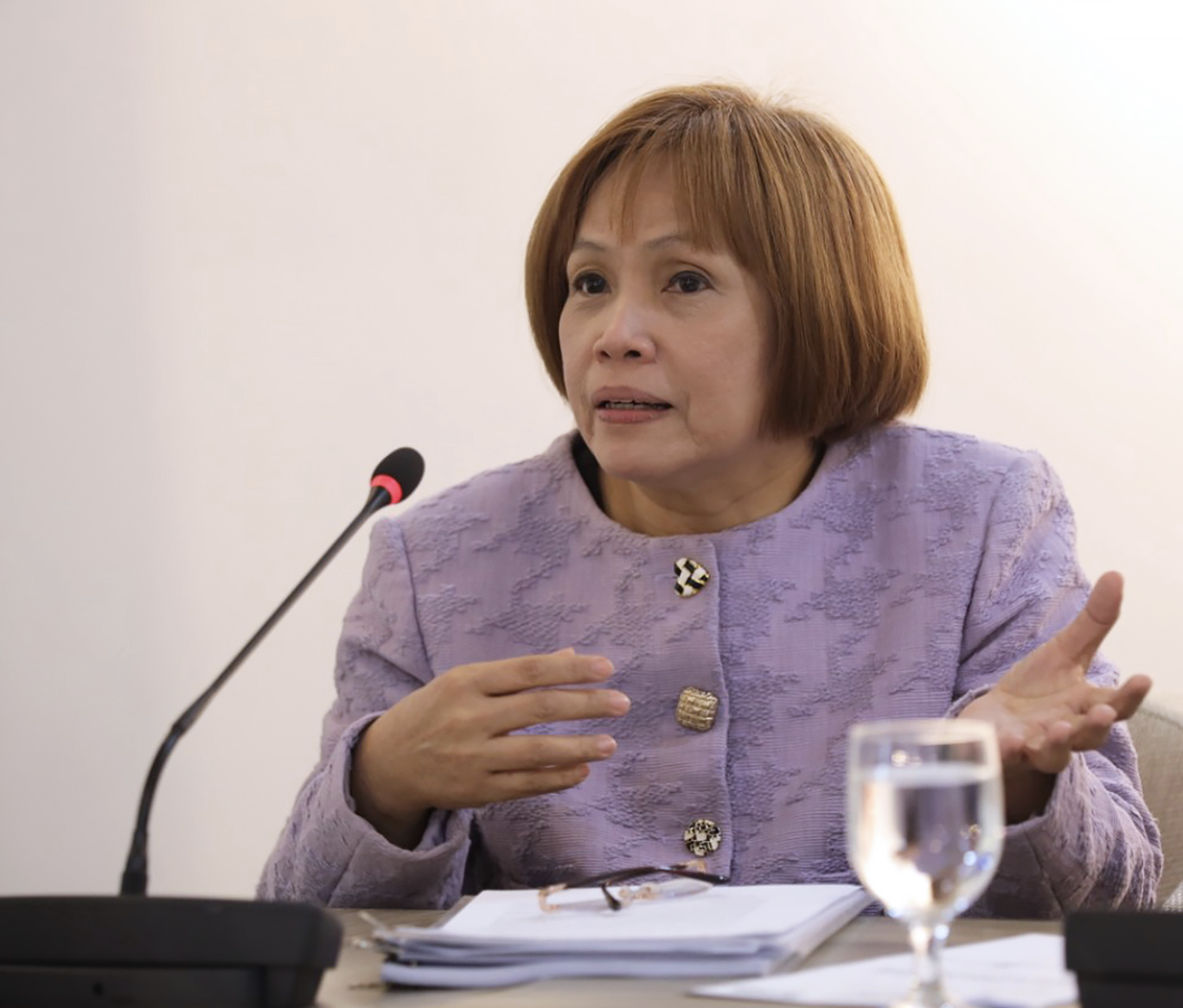Maharlika IRR revised to free officers from political influence — Monetary Board member
At A Glance
- In a statement, the former National Treasurer said the changes would allow the MIC to carry out its mandate more efficiently.
- Based on the revised IRR, the nominees for the PCEO no longer have to have an advanced degree in finance, economics, business administration, or a related field from a reputable university and additional professional certifications.
- The revised IRR also removed the requirement of having at least 10 years of a senior leadership role in a reputable financial institution or a public or private sector organization.
Monetary Board Member Rosalia De Leon said President Marcos wanted the Board of the Maharlika Investfund Corporation (MIC) to be "insulated from political influence and considerations" when looking for its officers.

De Leon said this after Malacañang released on Saturday, Nov. 11, the revised implementing rules and regulations (IRR) of the Maharlika Investment Fund (MIF) Act, which removed some of the qualifications for the Board's president and chief executive officer (PCEO).
In a statement, the former National Treasurer said the changes would allow the MIC to carry out its mandate more efficiently.
"The reason for removing the qualifications in the IRR is to give more independence to the Board in determining the specific qualifications of the other officers of the MIC in order to carry out its mandate to efficiently manage the MIF," she said.
"The President wants the Board to be insulated from political influence and considerations and would like to give the leeway to set the qualifications in the best way they know how based on their experience and expertise in fund management," she added
Based on the revised IRR, the nominees for the PCEO no longer have to have an advanced degree in finance, economics, business administration, or a related field from a reputable university and additional professional certifications.
The revised IRR also removed the requirement of having at least 10 years of a senior leadership role in a reputable financial institution or a public or private sector organization.
The PCEO, who shall work closely with the executive management and the Board, must have "exceptional experience and expertise in corporate management, financial planning strategy, strategic planning and vision, market and business development, and budget development."
The PCEO must also have at least 10 years of management experience, including extensive commercial lending/credit administration experience.
In addition, the PCEO must possess an "in-depth understanding of the industry," including risk management, compliance, and regulatory requirements, and strategic knowledge of cash flow and capital management.
The PCEO shall be appointed by the President, as recommended by the Advisory Body, for a term of three years.
The PCEO shall direct and supervise the operations and internal administration of the MIC and shall be charged with its risk management, financial performance, human resources, accounting, and legal affairs.
Based on the revised IRR, the President "may either accept or reject" the recommendation of the Advisory Body regarding the nominees for the MIC's PCEO and independent directors.
Marcos may also require the Advisory Body to submit additional names of nominees to the said vacant posts.
The previous version of the IRR, released in August this year, limited the choices of the President on who he can appoint to the MIC's Board to those shortlisted by the Advisory Body.